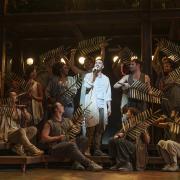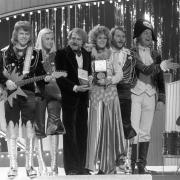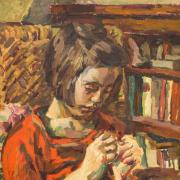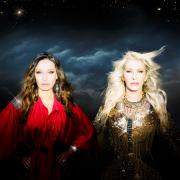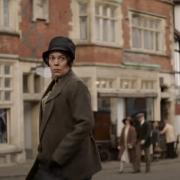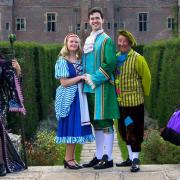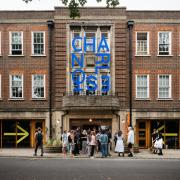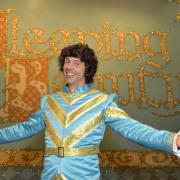As Horsham-based charity Born Free celebrates its 30th anniversary, co-founder Virginia McKenna tells us why the fight is far from won…
“I never give up hope. I believe in the ultimate kindness of people.” It is this strength of spirit that has made The Born Free Foundation a global force for wildlife. Described by The Times as “Big enough to make a difference, but small enough to care,” the Sussex charity is supported by celebrities including Joanna Lumley, Martin Clunes and Bryan Adams.
In 1964, husband and wife team Bill Travers and Virginia McKenna, both high profile actors, travelled to Kenya to star in the classic wildlife film Born Free, based on the best-selling book by Joy Adamson. Released in 1966, the film told the true story of George and Joy Adamson’s fight to return Elsa the lioness to the wild.
The Adamsons’ story was enjoyed by tens of millions around the globe, inspiring a generation and changing the world’s attitude to lions forever. But on a more personal level, making Born Free profoundly affected both Bill and Virginia. Their close contact with the animals sparked a lifelong commitment to wildlife, and they founded the charity around the idea that wild animals belong in the wild, not incarcerated in captivity.
The catalyst for doing so was the death of an elephant named Pole Pole (pronouced polee polee). One Thursday in 1983, Virginia woke to the sound of Bill talking to London Zoo on the phone. What happened next changed not just her life, but the governance of London Zoo and many like it. “Pole Pole is dead,” Bill said. Virginia broke down in tears.
In 1969, they had worked with Pole Pole on a film called An Elephant Called Slowly, shot in Kenya. The government in Nairobi had pledged the film’s two-year-old star to the Queen as a gift. The two actors fought to have her reunited with her family, even offering to buy her, but their pleas fell on deaf ears. Pole Pole was taken to London and ended up in the zoo.
When the pair visited the elephant, taking along her favourite oranges, she trumpeted in recognition, and greeted the actors by stretching her trunk across the moat that separated them. For the couple it was heartbreaking, and they began campaigning to rescue her. As a result of their efforts, Pole Pole was about to be taken to a new life in the open spaces of Whipsnade, where she would again get to live as part of a herd – but she died following complications with sedating and transporting her. Pole Pole’s death was the catalyst for forming Zoo Check, which later became Born Free – the name taken from the title of the film about Elsa, the orphaned lion cub. Three decades later, Born Free is a global charity with 100 employees worldwide, a budget of £2m a year and a magnificent record in rescuing animals from appalling conditions and rehoming them in sanctuaries staffed by wildlife experts.
“A survey conducted last year found 43 solitary elephants across Europe. We found one that had been alone for 40 years.” Virginia is eager to stress that while we may enjoy seeing elephants in zoos – the only place that some of us will ever get to see them – the vast majority are simply not happy. “They are social, caring and emotional animals. They feel happy, they feel sad, and they mourn. They do not belong alone.”
Looking to the future, Virginia has high hopes for the charity’s next 30 years. “I would like the immediate ban of importation of wild elephants to zoos and circuses, an end to ivory poaching, and I would really love to create an elephant sanctuary.” There are two such sanctuaries already in existence in America, but Virginia worries that we have neither the space nor the money here to replicate them. “We need someone terrifically wealthy to help us really,” she says pensively, seemingly unsure as to whether such a person will ever come forward.
Belying her 82 years, Virginia is still heavily involved in the charity. When we spoke she had just returned from Belgrave, having heard word of an elephant being kept in a solitary compound. Back on the home front in Sussex, she has help from her son Will, who is CEO of the charity. Virginia went to school in Horsham, and describes it as a “fantastic” place to be based. I imagine the office to be awash with animals great and small, but because of all the travelling she does, Virginia feels it wouldn’t be fair to keep even a dog. “Although this New Year, Will and I are thinking of getting a rescue dog, and that way if one of us is away, the other can stay and care for it, so it always has a home.”
Born Free’s core mission remains the abolition of zoos, many of which it says pay only lip-service to conservation and animal wellbeing. I ask if zoos ever serve a purpose, their main aims generally being education and rehabilitation, which certainly sound like good things. “If you’re breeding animals to go back in to the wild, then they really need a wild habitat, which is practically impossible to create, due to space restrictions. You can create a fair and hospitable place for a snail, but when it comes to the larger species, having space to truly roam is essential, which is just so difficult to achieve, so I don’t think they could ever be truly fulfilled in captivity – and if they’re not fulfilled, it’s not fair.”
For more information or to donate, call 01403 240170, or go to www.bornfree.org.uk




